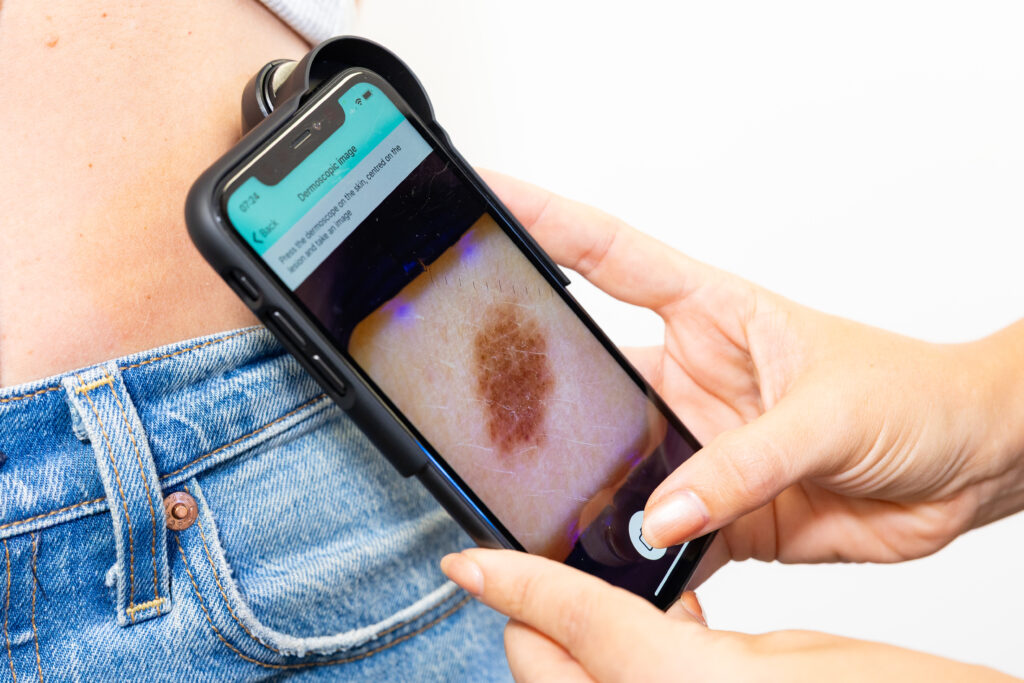Latest news
AI technology to speed up diagnosis of skin cancer and ease dermatology capacity

- AI technology being deployed to speed up skin cancer diagnosis and manage demand
- DERM helps classify scans of skin to determine whether it’s benign or requires treatment
- Fast-tracked patients will receive care sooner
AI technology is being deployed at Bolton NHS Foundation Trust to speed up the diagnosis of skin cancer and free up capacity within dermatology.
DERM, by Skin Analytics, assesses and classifies scans of moles or skin lesions that have been taken by a healthcare professional and Royal Bolton Hospital, after patient is referred by a GP for suspected skin cancer.
The AI medical device is trained to classify the most common malignant, pre-malignant and benign skin lesions.
Benefits of the technology include reduced caseloads for dermatologists by removing patients with benign lesions and fast-tracking patients with suspected malignant or premalignant lesions who require treatment.
Dr Francis Andrews, Medical Director at Bolton NHS Foundation Trust, said:
Skin cancer is the highest referring cancer speciality within the NHS and we’re seeing rising demands for the service in Bolton.
“Having delved into the evidence and seen the impact adding AI to teledermatology is having at other Trusts across England, we’re hopeful that this partnership with Skin Analytics will enable us to see and treat patients far quicker.
“It’s exciting to be able to drive innovation by combining new technology with the expertise of our dedicated clinical staff to improve health outcomes for people in Bolton.
Depending on DERM’s assessment, there are two possible management outcomes:
- For patients with suspected benign lesions, DERM confirms ability to discharge. Patients have their results communicated to them and are discharged by the Trust with advice on how to continue to monitor their skin.
- For patients with suspected malignant or premalignant lesions, the case is immediately available for a dermatologist review.
Dr Dan Mullarkey, Medical Director at Skin Analytics, said:
It’s great to see more Trusts across Greater Manchester harnessing innovation and deploying DERM to improve patient wait times and free up finite dermatology capacity. Together with BHT, we’ll help address the 3,200 referrals they receive for urgent suspected cancer per year without the need for additional face-to-face clinics.
Through this pathway, the Trust is aims to accelerate the diagnosis and management of skin cancer to improve outcomes and patient experiences.